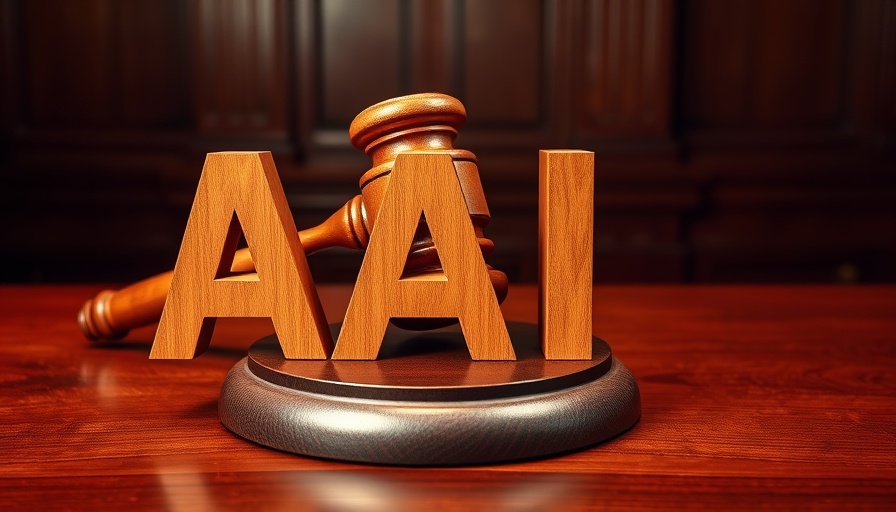
The Growing Challenge of AI in Legal Practice
As advancements in artificial intelligence reshape industries, the legal sector is feeling the pressure more than ever. A recent ruling from the High Court of England and Wales, presided over by Judge Victoria Sharp, warns lawyers about the risks of misusing generative AI tools such as ChatGPT, highlighting that their reliance on these technologies for legal citations could lead to severe penalties.
In her opinion, Judge Sharp pointed out that while AI can produce coherent text, it lacks the reliability necessary for conducting legal research. This reflects a critical need for lawyers to verify AI-generated content against authoritative sources before submission. The consequences for failing to do so can be significant, ranging from public admonition to severe sanctions.
Consequences of Misuse: A Call to Action for Lawyers
The implications of using dubious citations in legal filings are profound. Two recent cases served as pertinent examples: lawyers cited fictional cases and misrepresented actual facts—actions that could undermine the integrity of the court and make clients' cases irrevocably weaker. The Judge emphasized the responsibility lawyers have not just towards their clients but towards the justice system itself.
Lawyers must adapt rapidly to the digital age. Understanding the capabilities and limitations of AI tools is paramount. Legal professionals who fail to take these developments seriously risk not only their careers but the broader perception of the legal profession.
Future of AI in Legal Practice: A Double-Edged Sword
The legal industry stands at a crossroads as it embraces next-gen technology. While AI has the potential to revolutionize research and streamline workflows, it also poses risks regarding accuracy and authenticity. As AI technology continues to evolve, lawyers must balance efficiency with ethical assignments. This is not merely a trend; it marks a pivotal moment in the evolution of the legal field, as it grapples with the challenges posed by cutting-edge technology.
Understanding AI-Generated Content: Best Practices for Compliance
Lawyers can take proactive steps to ensure their compliance with legal standards when integrating AI tools into their practices. Here are some best practices:
- Verification of Sources: Always cross-reference AI-generated content with credible sources.
- Training and Education: Invest in continued education regarding AI tools and their proper applications.
- Establish Clear Protocols: Implement guidelines for using AI to minimize risk and ensure accountability.
Ultimately, as legal practices become more reliant on technology, maintaining a rigorous approach to the accuracy of AI-generated research is crucial for sustained trust and integrity within the profession.
 Add Row
Add Row  Add
Add 




 Add Row
Add Row  Add
Add 



Write A Comment